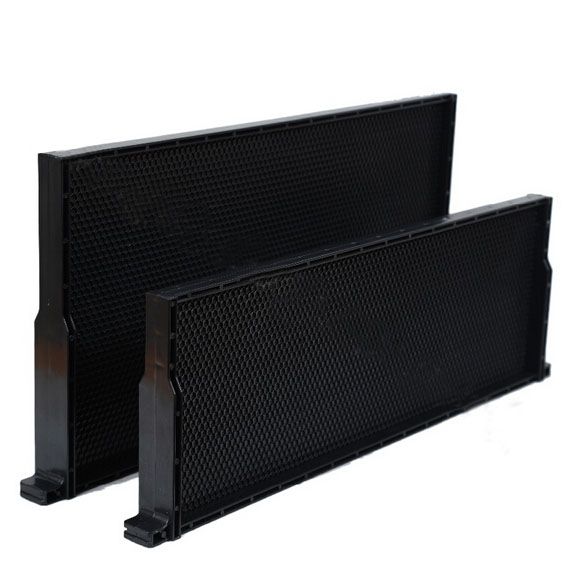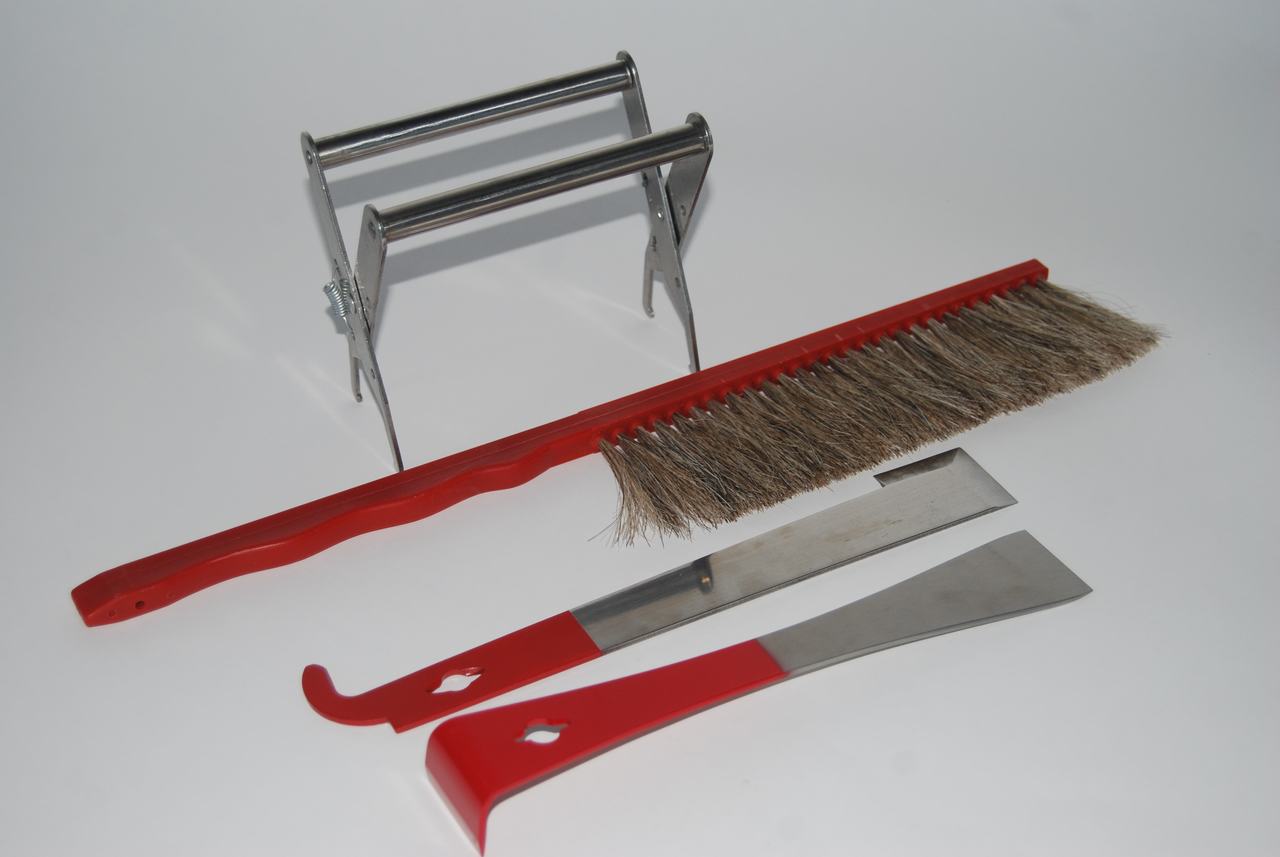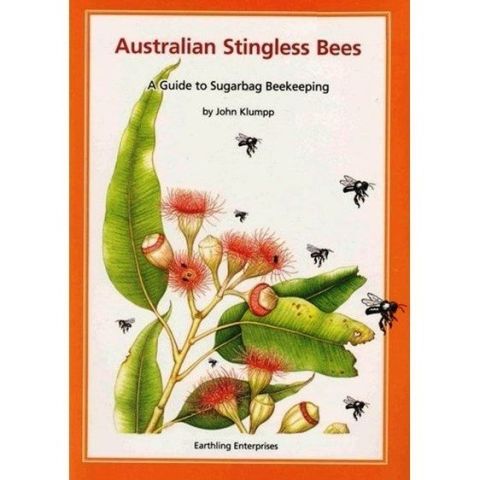Post by Jackosaur on Aug 20, 2018 23:16:11 GMT 10
I've been doing beekeeping in my backyard for several years now, it has got to the point that I have begun running short classes via Airbnb's 'experiences' category and have been surprised by how popular it has been. I would describe it as there being a lot to know but not being difficult. I do believe it is relevant to prepping too as it is a food source that can be farmed that doesn't require a large field or large financial investment to get started. A single hive can produce 25 to 30kg a year of honey.
If anyone has any questions just let me know.
Safety:
Bees aren't as scary as what most people think they are, they die when they sting you so stinging you in a last resort for them most of the time. Although bees would definitely try to attack if I opened a hive without applying smoke first, I can usually stand right in front of a hive without it bothering them.
Some tips though:
Even if you are not allergic now, if you get stung frequently over a short span of time, for example every day for a week, by the end of the week you greatly increase the chance of you becoming deathly allergic. If you come out in a red rash on much of your body, call an ambulance. I recommend taking an anti-histamine tablet such as Zyrtec or Telfast any time you are stung. Whilst getting stung frequently is bad, I find if you space your stings out over a longer time (2 weeks or more apart) it's beneficial. The first time you will swell up, the second time less so, the third time probably not at all.
Always wear your full beekeeing suit and apply smoke when opening a hive. Always treat them with the respect that they are a potentially deadly creature. Friendly docile bees after being smoked can cause you to become complacent and next time think 'those bees are always friendly, I won't bother with the smoker today'. I still remember that experience of dozens of stings! I was wearing the full suit but they found my only weakness, my black socks (did I mention bees hate black?)
Don't open a bee hive in the evening or at night, no amount of smoke will keep them happy.
No rapid hand movements when working inside a hive.
Starting out:
Register as a bee keeper, It's about $30 per year, or half with a concession. Whether you want to take the gamble of not registering is up to you, however the benefits are if there is a disease outbreak in your area they say they will notify you. Also, if a neighbour complains for some reason and they send an inspector out, if you're registered they'll most likely be on your side.
Equipment:
You can get timber or plastic boxes, I recommend plastic. Specifically the ones from Nuplas. nuplasapiaristsupplies.com.au/products/hive-components/10-frame-hive-components/ All orders $30 freight to your door. Timber ones you need to paint or oil, can get termites, don't last as long. Just trust me.
For the frames that go inside for the bees to build honeycomb onto you can get timber or plastic. Again I would suggest plastic, though I found Nuplas a bit expensive on the frames, I suggest beekeeping.iwoohoo.com.au/frames/plastic-frame-and-foundation-full-depth/ . Timber frames don't last as long and they swell with any moisture, making them difficult to remove. Unlike timber frames, plastic frames come with a pre-stamped hexagon pattern 'foundation' for the bees to build off as a guide. You do need to paint them in melted beeswax first though as bees don't really like plastic.

For a suit I recommend eBay. Can get a full suit including gloves for $50 delivered!
For a smoker, I recommend getting a LARGE one as smaller ones run out of fuel too fast. beekeeping.iwoohoo.com.au/tools/bee-hive-smoker-large/
Also will need a hive tool, a brush, frame lifter.

Honey extraction
You can extract honey either by scraping the honeycomb full of honey from the frame, mashing it up with a potato masher and putting it through a strainer, or putting the frame through an extractor, which is a centrifuge. Although an extractor can cost a few hundred dollars, if you want to maximise your honey production you will need to get one, as this does not destroy the wax and the bees can refill the frame with honey without having to rebuild the wax all over again, which takes time and consumes their resources. Bees must consume 8 pounds of honey to produce 1 pound of wax. Alternatively you could buy a Flow hive, which I recommend if you're only planning on having 1 bee hive as a hobby. A Flow hive is an invention that has special preformed hexagon honeycomb cells that when full, a turn of a lever will split the hexagons and the honey will drain out without you having to remove the frames from the hive. They are costly though, around $1000 each, about 5 times the price of a traditional hive.
Obtaining bees
You can either buy bees or catch your own, a nucleus hive (half size starter hive) usually sells for about $150 if you provide your own box. Alternatively you can catch a swarm in the Spring time. If you post an ad on Gumtree offering swarm removal you will get calls. Only go out to the easy ones though, such as dangling on a low tree branch. I wouldn't recommend removing an already established hive. Removing a swarm in an easy location is as simple as holding a cardboard box under the branch they are clinging too and giving it a whack and they will all fall in.
That's all for now.
If anyone has any questions just let me know.
Safety:
Bees aren't as scary as what most people think they are, they die when they sting you so stinging you in a last resort for them most of the time. Although bees would definitely try to attack if I opened a hive without applying smoke first, I can usually stand right in front of a hive without it bothering them.
Some tips though:
Even if you are not allergic now, if you get stung frequently over a short span of time, for example every day for a week, by the end of the week you greatly increase the chance of you becoming deathly allergic. If you come out in a red rash on much of your body, call an ambulance. I recommend taking an anti-histamine tablet such as Zyrtec or Telfast any time you are stung. Whilst getting stung frequently is bad, I find if you space your stings out over a longer time (2 weeks or more apart) it's beneficial. The first time you will swell up, the second time less so, the third time probably not at all.
Always wear your full beekeeing suit and apply smoke when opening a hive. Always treat them with the respect that they are a potentially deadly creature. Friendly docile bees after being smoked can cause you to become complacent and next time think 'those bees are always friendly, I won't bother with the smoker today'. I still remember that experience of dozens of stings! I was wearing the full suit but they found my only weakness, my black socks (did I mention bees hate black?)
Don't open a bee hive in the evening or at night, no amount of smoke will keep them happy.
No rapid hand movements when working inside a hive.
Starting out:
Register as a bee keeper, It's about $30 per year, or half with a concession. Whether you want to take the gamble of not registering is up to you, however the benefits are if there is a disease outbreak in your area they say they will notify you. Also, if a neighbour complains for some reason and they send an inspector out, if you're registered they'll most likely be on your side.
Equipment:
You can get timber or plastic boxes, I recommend plastic. Specifically the ones from Nuplas. nuplasapiaristsupplies.com.au/products/hive-components/10-frame-hive-components/ All orders $30 freight to your door. Timber ones you need to paint or oil, can get termites, don't last as long. Just trust me.
For the frames that go inside for the bees to build honeycomb onto you can get timber or plastic. Again I would suggest plastic, though I found Nuplas a bit expensive on the frames, I suggest beekeeping.iwoohoo.com.au/frames/plastic-frame-and-foundation-full-depth/ . Timber frames don't last as long and they swell with any moisture, making them difficult to remove. Unlike timber frames, plastic frames come with a pre-stamped hexagon pattern 'foundation' for the bees to build off as a guide. You do need to paint them in melted beeswax first though as bees don't really like plastic.

For a suit I recommend eBay. Can get a full suit including gloves for $50 delivered!
For a smoker, I recommend getting a LARGE one as smaller ones run out of fuel too fast. beekeeping.iwoohoo.com.au/tools/bee-hive-smoker-large/
Also will need a hive tool, a brush, frame lifter.

Honey extraction
You can extract honey either by scraping the honeycomb full of honey from the frame, mashing it up with a potato masher and putting it through a strainer, or putting the frame through an extractor, which is a centrifuge. Although an extractor can cost a few hundred dollars, if you want to maximise your honey production you will need to get one, as this does not destroy the wax and the bees can refill the frame with honey without having to rebuild the wax all over again, which takes time and consumes their resources. Bees must consume 8 pounds of honey to produce 1 pound of wax. Alternatively you could buy a Flow hive, which I recommend if you're only planning on having 1 bee hive as a hobby. A Flow hive is an invention that has special preformed hexagon honeycomb cells that when full, a turn of a lever will split the hexagons and the honey will drain out without you having to remove the frames from the hive. They are costly though, around $1000 each, about 5 times the price of a traditional hive.
Obtaining bees
You can either buy bees or catch your own, a nucleus hive (half size starter hive) usually sells for about $150 if you provide your own box. Alternatively you can catch a swarm in the Spring time. If you post an ad on Gumtree offering swarm removal you will get calls. Only go out to the easy ones though, such as dangling on a low tree branch. I wouldn't recommend removing an already established hive. Removing a swarm in an easy location is as simple as holding a cardboard box under the branch they are clinging too and giving it a whack and they will all fall in.
That's all for now.




